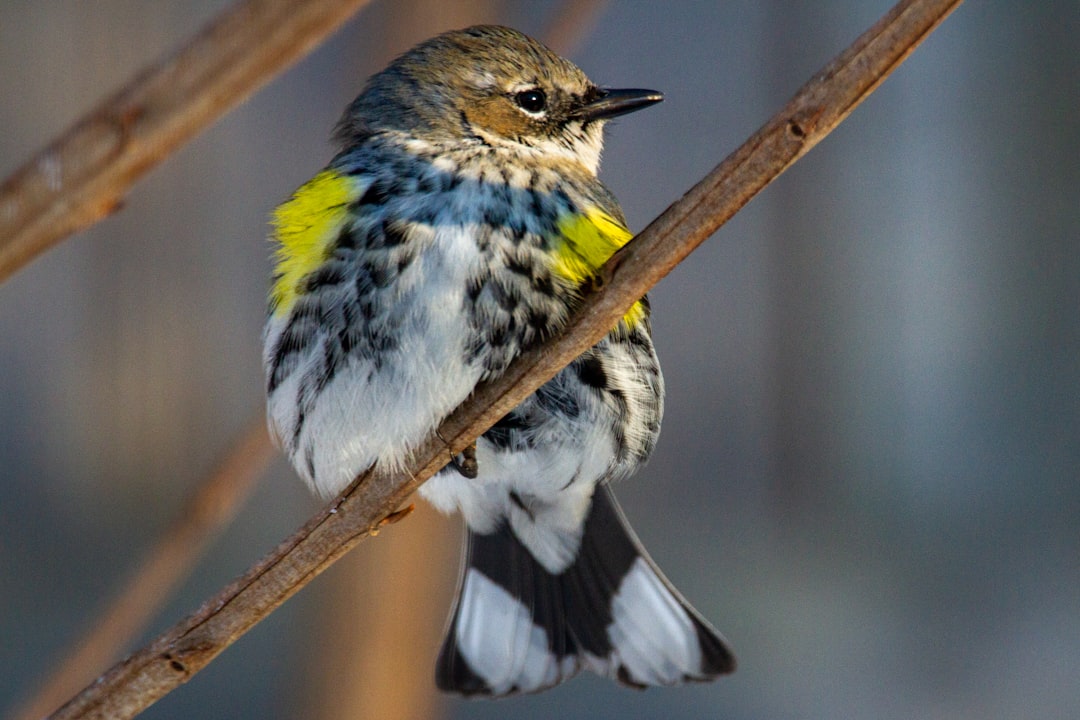Impatience and Idolatry
How waiting is the way beyond idols - The Word in the Wild, Proper 23, Year A

This morning three birds arrived, fresh from boreal summers, ready to winter in Arkansas. The first came before first light, just as the dawn chorus was beginning. Seeeet—I recognized it immediately, the long note of a White-throated Sparrow, perched in my elderberry tree. That seeeet will be a background noise to most of my walks this winter, but its been absent since April while these sparrows were nesting in the north.
Later, walking out to my writing shed, I heard the familiar chip note of a Yellow-rumped Warbler, and looked up in my Eastern Red Cedar to see it feeding on the small blue berries of the tree. Then, just after, I saw the flitting movement of a Ruby-Crowned Kinglet. To see these birds in a world of so much disarray was a comfort. Despite everything, the ancient rhythm of migration continues—here are these birds, once again, right on schedule.
Creation has its pace, and so do we within it. But human life seems to have lost this rhythm. We want to move the world along, faster and faster, and soon enough we lose the music of the deep chorus of the world. Same day delivery, high speed internet, super highways—our lives are organized around speed, and as we move toward those velocities, we begin to adopt an inhuman pace. Charlie Chaplin illustrated this with great comic effect in Modern Times, his body becoming machine-like as he tried to conform his movements to the speeding factory line.
Impatience is the invitation to idolatry. At their roots, all idols are attempts to control and manipulate the world. And the more we can make the world conform to our desires, the less we are willing to wait, the more anxious we are to move things along.
It was impatience that drove the Israelites, waiting at the base of Mt. Sinai, to call on Aaron to build them an idol. They had waited over a month for Moses to return, and in the anxiety of that waiting, the silence of a God who did not answer, they turned to make an idol they could control. In this act they made a thing that they could worship, and in so doing they became things themselves. Among the best way to spot an idol is to ask whether it makes a thing of those its serves. Chaplin’s character the Little Tramp was made a cog in the wheel of the machine, and so he illustrated what we all become in an economy that sees creation, people, and places, only as a set of resources. In this we can see, that though we do not make golden calves, we have plenty of idols at whose feet we sacrifice our personhood.
The remedy to idolatry is to act in the opposite direction of its impatience and impulse toward control. Sarah Coakley has said that our best prayers are a “defenseless waiting” upon God. It is in such defenseless waiting, free of our attempt to make the world a set of things, that we are able to finally accept the gifts of creation and join in their rhythm.
Today I have deadlines to meet, meetings scheduled, a host of things I’m trying to cram into the day. And I admit, that I want things faster, easier to manipulate to my ends and desires. Like the Israelites, I’m ready to get on the road of my life toward whatever promised land lies ahead, and I’m tired of waiting for a message to come down from the slow God of Sinai. But the birds, in their unhurried movements around my yard, arriving again in the ancient rhythms of creation, remind me that the world is not a resource and I’m not a machine. Today is a gift and my life is a gift within it. To live as that gift is the task, waiting in peace before the Giver.



''Today is a gift and my life is a gift within it. To live as that gift is the task, waiting in peace before the Giver.'' thanks for your writings.